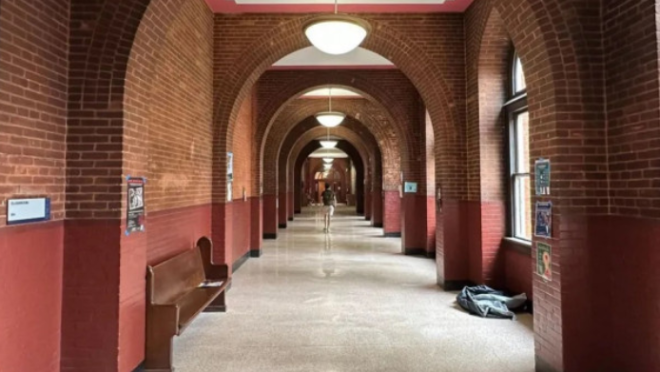Visa cancellations, arrests spread fear among international students in the US
Visa cancellations, arrests spread fear among international students in the US

Over the past few weeks, a growing number of international students in the United States have found themselves at the centre of a wave of visa cancellations, detentions and rising anxiety on university campuses. According to a tracker by Inside Higher Ed, visas or legal statuses of more than 1,000 foreign students and recent graduates have been revoked or altered.
Photos and videos widely circulated on social media show plainclothes agents suddenly picking up students from campuses or apartments and taking them to detention centres—many without any prior warning or criminal charges.
Concerns are mounting that these students are being targeted for their alleged participation in pro-Palestinian campus protests. A BBC report suggests that this wave of arrests may be linked to political expression surrounding the ongoing Israel-Gaza conflict.
The Trump administration has previously stated that student visas are a “special privilege” that can be revoked at any time. The current developments suggest a broader and more systematic crackdown, sparking widespread concern in both public and private universities, including Ivy League institutions.
Many affected students report having little to no clarity on why their visas were cancelled. Universities, too, are only able to track visa status updates through government-run databases for international students.
One student at Georgetown University, who has written extensively on the Israel-Gaza war, told the media, “I may be the next target.” He now carries a card detailing his legal rights in case he is interrogated by law enforcement.
Another student from Texas shared that he no longer feels safe enough to leave his apartment—not even to buy groceries.
In some cases, foreign researchers have opted not to return to the US due to these developments. Most of the students involved have asked to remain anonymous, fearing further reprisals.
Criticism leads to cancellation
While some students were reportedly flagged for minor offences, including traffic violations, US Senator Marco Rubio stated that many of those being targeted had participated in pro-Palestinian protests. The White House has defended the crackdown, claiming that certain students have created an “unsafe environment” for Jewish peers and shown support for Hamas—an allegation several students strongly deny.
“Wherever we find them, we revoke their visas. We do this every day,” Rubio told the press.
Civil liberties organisations argue that these arrests and deportation threats are unconstitutional. Students maintain that their actions stemmed from peaceful protest and criticism of US policy on Gaza, and not from any affiliation with extremist groups.
Family ties now under scrutiny
In one instance, Georgetown postdoctoral fellow Badr Khan Souri was arrested outside his home in Virginia. He was accused of expressing antisemitic views online and having links to a “suspected terrorist”—his late father-in-law, a former adviser to Hamas leader Ismail Haniyeh. Lawyers claim Souri had only met the man a few times and is being targeted simply because of his familial connection.
In another high-profile case, Columbia University student and protest organiser Mahmud Khalil was arrested from his New York home and is now being held at a detention centre in Louisiana, awaiting deportation. Tufts University student Rumeysa Ozturk, who co-authored an op-ed on Gaza, was also taken into custody from Massachusetts.
Even students with legal residency have been affected. Mohsen Mahdavi, a Columbia student with a green card, was detained last Monday in Vermont during his citizenship interview.
Students living in fear
The Georgetown student mentioned earlier said he has now deleted all sensitive content from his phone and messaging apps, learned how to trigger emergency SOS mode quickly, and requested his parents not to attend his graduation ceremony out of fear for their safety.
Faculty members at Georgetown have reportedly offered their own homes as safe spaces for students.
One pro-Palestinian student at Tufts, after watching the video of Ozturk’s arrest during Ramadan, said the fear has become overwhelming.
Students who recently travelled abroad are now reluctant to return to the US. Some are attending classes remotely from outside the country.
“I’m afraid to go to class or even the grocery store,” said a master’s student from the University of Texas. “It feels like plainclothes agents could show up and take me at any moment.”
He added that while he never joined a protest, he had posted critical comments about the President—which he now fears could be used against him.
Universities under pressure
The Trump administration’s actions have extended beyond individual students. Harvard University, for instance, saw a $2 billion fund suspended after the White House’s antisemitism task force demanded certain international student data be handed over. University officials warned that complying would jeopardise institutional autonomy.
Trump officials have also reportedly threatened to block future student visas if universities refuse to share specific information.
Professor Nader Hashemi of Georgetown believes the overarching goal is to suppress dissent. In the process, thousands of students are left navigating an uncertain and increasingly hostile environment.


